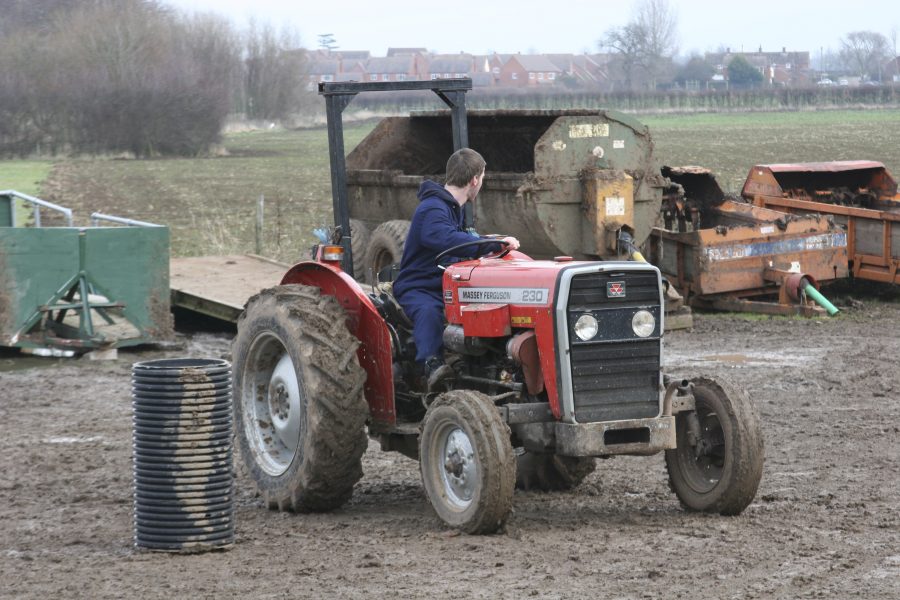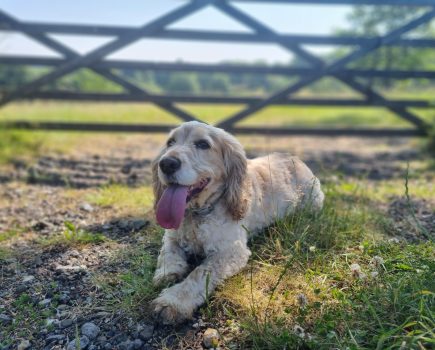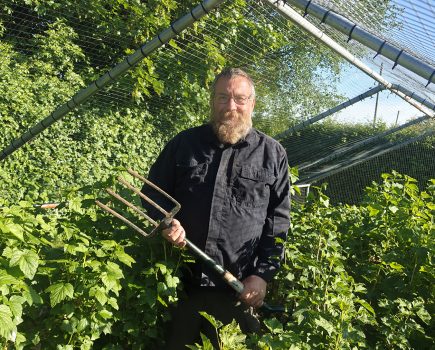Agricultural journalist, smallholder and Editor of the Ferguson Heritage Magazine, Jane Brooks, joins us for her regular look at the world of agricultural machinery. This month an upcoming birthday and a lost key have led to her reflecting on some useful New Year’s Resolutions and canvassing a few farming friends for some handy hints on farm safety.
The New Year is a bit of an annual ritual for my household. Firstly, it’s my birthday on New Year’s Day and this one is a biggie, 65 and not out. Quite how I’ll feel on the day is anyone’s guess, but one thing is certain I will be expecting presents, an idle day and a trip to our local hostelry. Although I don’t partake of anything alcoholic myself, so no doubt as per usual I’ll be designated driver.
My other New Year’s ritual is to make a few resolutions, you know, the usual ones, get more exercise, lose weight and stop worrying about things I can’t change, like the passing years.This year, however, there is going to be one resolution that I will stick to, get more keys cut. Particularly as my husband has just spent a fruitless half hour searching for the key to the lock on his workshop, finally giving up and bolt cropping off the offending lock, luckily his bolt croppers were in a tractor. I did ask him where the spare key was, probably a mistake as his unprintable reply, with much rolling of his eyes, was to inform me that he didn’t have a spare as he usually kept the key in the pocket of his work jeans where it was quite safe, unless of course I had emptied the pockets to wash them. Which of course I hadn’t. Anyway, this leads to my topic for this month, winter resolutions, or a few good ideas that could save time, don’t cost the earth and keep you out of trouble.
RESOLVE TO STAY SAFE
On a serious note, perhaps one resolution to make is to ensure that everyone on your farm or smallholding remains safe, ensure that you manage the daily risks you face working with animals and machinery in such a way that your safety and the safety of those around you is not compromised in any way.
Figures published in the Health and Safety Executive’s report ‘Fatal injuries in agriculture, forestry and fishing in Great Britain 2022/23’ show 27 people were killed as a result of farming and other agriculture-related activities during the year. Being injured by an animal (cattle) caused most deaths. Agriculture has the worst rate of worker fatal injury (per 100,000 workers) of all the main industry sectors, with the annual average injury rate over the last five years around 21times as high as the all-industry rate. Older workers (45+) account for 80% of all work-related fatalities in agriculture over the last 5 years.
If you haven’t already, invest in quality personal protection equipment (PPE) such as hearing protection for use or in situations with damaging noise levels, such as using a chainsaw, or loud machinery. Don’t forget to use suitable eye protection, such as impact-resistant safety glasses, goggles or face shields. Think head, neck, hand, foot, to ensure that with any task you are doing you are protecting those areas. A hard hat, ear plugs, steel toe capped boots, chemical resistant gloves, masks, respirators and overalls, or the right kit to work with a chain saw are all potentially life savers, as is the right training and not just leaving safety kit hanging in a porch or shed, but actually using it. (The editor would like to add that steel toe capped trainers are surprisingly comfortable and have saved her feet on numerous occasions from large livestock’s feet meeting hers, preventing the painful results.)
This article extract was taken from the January 2024 edition of The Country Smallholder. To read the article in full and get more safety tips from Jane Brooks, you can buy the issue here.
To receive regular copies of The Country Smallholder magazine featuring more articles like this, subscribe here.
For FREE updates from the world of smallholding, sign up for The Country Smallholder newsletter here.








